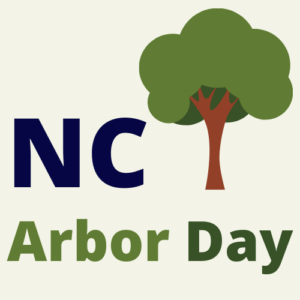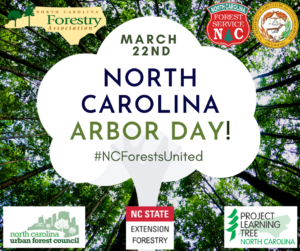NC Arbor Day – March 22, 2024
go.ncsu.edu/readext?781743
en Español / em Português
El inglés es el idioma de control de esta página. En la medida en que haya algún conflicto entre la traducción al inglés y la traducción, el inglés prevalece.
Al hacer clic en el enlace de traducción se activa un servicio de traducción gratuito para convertir la página al español. Al igual que con cualquier traducción por Internet, la conversión no es sensible al contexto y puede que no traduzca el texto en su significado original. NC State Extension no garantiza la exactitud del texto traducido. Por favor, tenga en cuenta que algunas aplicaciones y/o servicios pueden no funcionar como se espera cuando se traducen.
Português
Inglês é o idioma de controle desta página. Na medida que haja algum conflito entre o texto original em Inglês e a tradução, o Inglês prevalece.
Ao clicar no link de tradução, um serviço gratuito de tradução será ativado para converter a página para o Português. Como em qualquer tradução pela internet, a conversão não é sensivel ao contexto e pode não ocorrer a tradução para o significado orginal. O serviço de Extensão da Carolina do Norte (NC State Extension) não garante a exatidão do texto traduzido. Por favor, observe que algumas funções ou serviços podem não funcionar como esperado após a tradução.
English
English is the controlling language of this page. To the extent there is any conflict between the English text and the translation, English controls.
Clicking on the translation link activates a free translation service to convert the page to Spanish. As with any Internet translation, the conversion is not context-sensitive and may not translate the text to its original meaning. NC State Extension does not guarantee the accuracy of the translated text. Please note that some applications and/or services may not function as expected when translated.
Collapse ▲North Carolina’s Arbor Day is just around the corner! Learn more about NC Arbor Day and celebrate with us!

What is Arbor Day?
Arbor Day is a day about celebrating trees and recognizing their many benefits to our lives. Typically, Arbor Day is celebrated by planting trees in the name of conservation by replenishing our forests and bringing trees to places in need. You can learn more about Arbor Day and its history on the Arbor Day Foundation website.
When Do We Celebrate Arbor Day?
Nationally, Arbor Day is celebrated on the last Friday of April. However, most states observe a separate Arbor Day on a date of their choosing in accordance with the best tree-planting times. In North Carolina, we celebrate Arbor on the first Friday following March 15. This year, NC Arbor Day falls on Friday, March 22nd. Find future NC Arbor Day dates with the NC Forest Service.
Be on the Lookout!

Join us in celebrating Arbor Day all week long, Sunday, March 12 through Friday, March 17! We’re teaming up with the NC Forest Service, NC Forestry Association, NC Project Learning Tree, and NC Urban Forest Council on Facebook and X (formally Twitter) to give you all the tree-loving resources you need. Each day we’ve selected a different theme highlighting key parts of trees and forestry:
- Monday – Introduction to Arbor Day
- Tuesday – Human Health Benefits from Trees
- Wednesday – Environmental Benefits
- Thursday – Economic Benefits
- Friday – Celebrate Trees! Plant a Tree!
How to Celebrate
Arbor Day is all about giving thanks to your trees. There are many ways you can celebrate your trees. Here are a few ideas:
- Pick up litter. The trees clean the air for us. Let’s clean up the ground for them.
- Get outside. You can’t show your gratitude to trees from indoors. Get outside and spend time in nature.
- Plant a tree! What better way to celebrate our trees than planting one? Learn more about how to best plant trees with our reforestation page.
- Learn tree identification. Learn what trees are around you and their individual benefits. Check out our new tree identification resource helping you identify 21 of North Carolina’s most common trees.
- Understand invasive species. You can protect trees by understanding invasive species that harm them and utilizing best practices to avoid further spread. Learn more about invasive species on our forest health page.
- Manage your woodlots. The best way to have healthy trees is by learning forest management. Discover how to manage your forestland with our forest management page.


